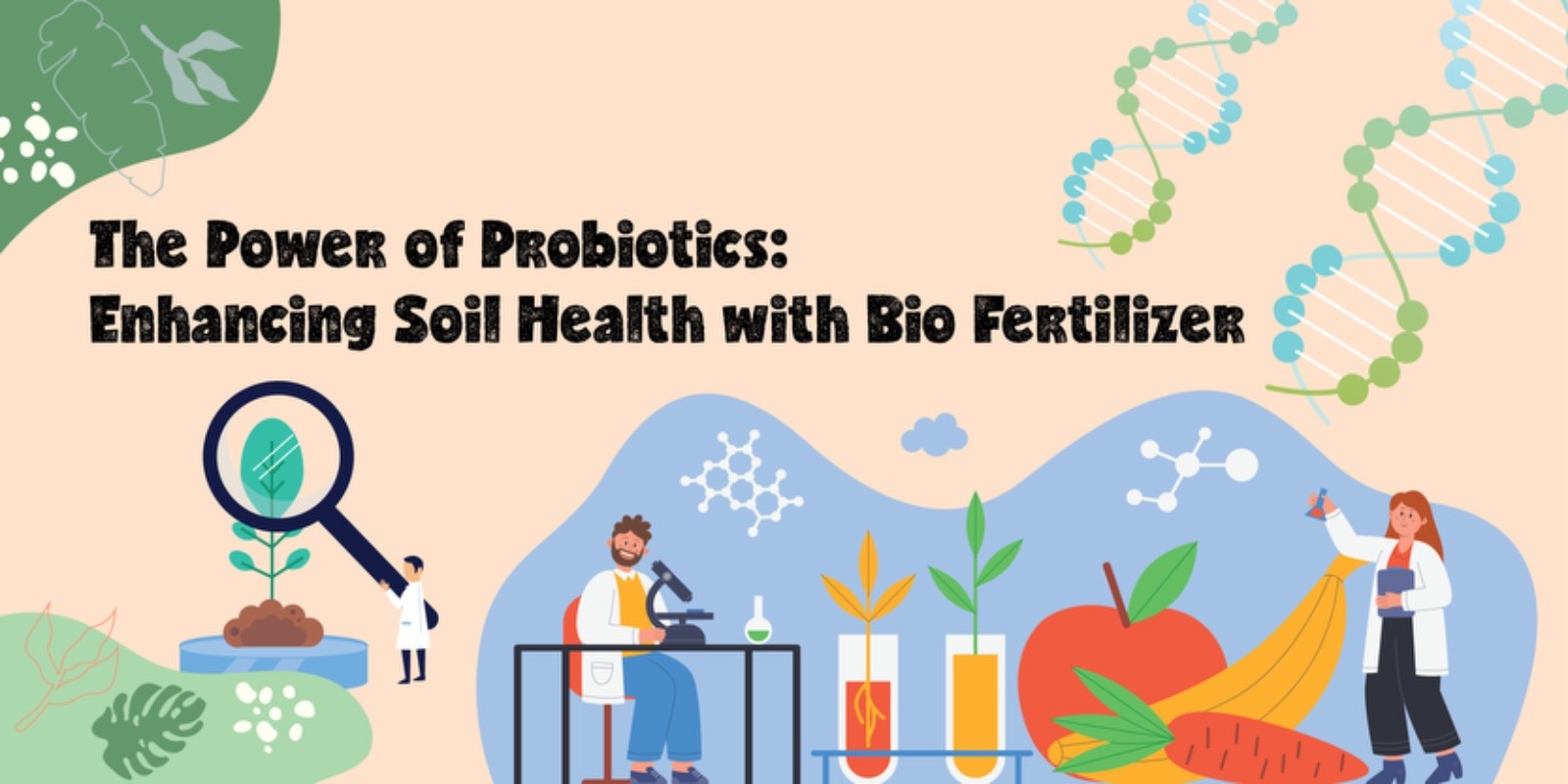
Discover how probiotic bio fertilizers can revolutionize soil health and transform your garden into a thriving ecosystem.
Understanding the Role of Probiotics in Soil Health
Probiotics are not just beneficial for human health; they play a crucial role in maintaining soil health as well. In the context of gardening and agriculture, probiotics refer to beneficial microbes that enhance soil properties and stimulate plant growth.
These microbes, such as photosynthetic bacteria, harness energy from the sun to fuel their activities. They feed the soil microbes, which in turn break down organic material into simpler compounds. This breakdown process releases essential nutrients like Carbon, Nitrogen, and Phosphorous, making them available for plant uptake.
Benefits of Using Green Spade Probiotic Fertilizer
The microbes in Green Spade Probiotic Fertilizer contains photosynthetic microbes that use energy from the sun to provide energy to feed the soil microbes in your garden. These soil microbes break down organic material in the garden every day into simpler compounds that plants use for growth, including sources of Carbon, Nitrogen and Phosphorous. When used on plants and soil, these microbes stabilize the soil and the energy and nutrient systems in the system, making your soil more fertile!
Green Spade probiotics fertilizer offers a range of benefits for your garden. By introducing beneficial microbes into the soil, it promotes a healthier and more balanced soil ecosystem. This leads to improved nutrient cycling and increased soil fertility.
The use of this fertilizer results in healthier and more consistent plant growth. Plants benefit from a steady supply of essential nutrients and a more stable soil environment, which can lead to higher yields and more robust plants.
How Probiotics Enhance Nutrient Availability
Probiotics enhance nutrient availability by breaking down complex organic materials into simpler compounds that plants can readily absorb. This process involves the conversion of organic matter into forms such as nitrates, phosphates, and other essential nutrients.
Additionally, these microbes stabilize the soil structure and improve water retention, ensuring that nutrients remain available to plants for longer periods. This enhanced nutrient availability supports vigorous plant growth and resilience against environmental stressors.
Steps to Incorporate Probiotic Fertilizer into Your Gardening Routine
Incorporating probiotic fertilizer into your gardening routine is straightforward. Begin by applying the fertilizer to the soil according to the manufacturer's instructions. Ensure even distribution to maximize its effectiveness.
Regularly use the fertilizer throughout the growing season to maintain a healthy population of beneficial microbes. Additionally, consider incorporating organic matter such as compost to further support microbial activity and soil health.
Case Studies: Probiotics Transforming Gardens
Several case studies highlight the transformative impact of probiotic fertilizers on gardens. For instance, a community garden in Shanghai experienced a significant increase in vegetable yields and overall plant health after incorporating Green Spade Probiotic Fertilizer.
Another example is a small urban garden in Beijing, where the use of probiotic fertilizer led to more vibrant flowers and healthier soil structure. These success stories demonstrate the potential of probiotics to revolutionize gardening practices and create thriving ecosystems.




Leave Your Comment Here